Over the last few months, debates around the possibility of a global financial recession in 2020 have held great preponderance in international economic news coverage. If analysts’ predictions manifest as anticipated, managing a business in a recession could present unique challenges for business owners who aren’t prepared.
During times of financial instability, job eliminations and hiring freezes seem almost routine. Senior Managers debate employee attrition while jittery staffers anxiously wait to hear if they’re being given the axe. When people are worried about their own financial security, they’re unlikely to be giving their job sufficient attention.
A CFO Global Business Outlook survey recently found that business optimism was at its lowest level in three years and that respondents largely thought a recession before the 2020 US election seemed likely. The survey also found that 53% of American CFOs believed that there would be a recession by the 2020 election and two-thirds saw one coming by the end of 2020. In another survey by the National Association for Business Economics, more than 70% of economists surveyed said that they think a recession will occur before the end of 2021.
So, if a recession seems destined to crash the US economy in the next two years, what are some of the things businesses can do to prepare for the challenges that lie ahead, and thrive in the process?
Although it might seem counterintuitive, resist the urge to stop all hiring. In economic downturns, a well-staffed team gives you a leg up in your industry and can yield more favourable outcomes in terms of business health and sustainability than being short-staffed. Output from a well-staffed business is much higher, especially during a recession, than one with reduced numbers.

Second, leverage the recession in terms of securing top talent. With other companies letting some of their best workers go, you now have the luxury of choosing candidates from the pick of the litter. Gold-standard employees who may not have considered your business before, now become securable and at a lower cost-to-company.
Third, prioritise hiring in positions that have a high impact on your business performance. This will ensure that you get the most out of your budget and can maximize these individuals’ niche skills. Make sure to use the best recruitment methods and agencies that have given you a continual return. This will help weed out poor candidates and prevent hiring misfires. Recessions are not the time to make unnecessary experiments.
Finally, position your business as a secure option. If you’re aiming to attract the best talent in unsettling financial times, it’s important to ensure that candidates trust that your organization is a stable fit and they are making the right choice for their financial futures. The benefits of this for your business will pay-off even after the recession has passed.
“After the Great Recession of 2007, many companies found that abandoning their hiring strategy at the time was a grave mistake as it affected productivity, and ultimately, business performance. No matter what the state of the economy, you always want to have the best people on board, with the right mix of skills, experience and passion, to grow your business. Recruiting top talent is even more important in a rough economic climate when companies need every competitive edge, they can muster up to weather the storm. MSI Recruiting endeavours to support all businesses in this regard should a recession in the next few years unfold,” said Jody Moore, Partner.
The best time to prepare for a recession is before it happens. Contact MSI Recruiting to learn more about how we can support your business’ staffing requirements before, during and after a potential economic recession.
